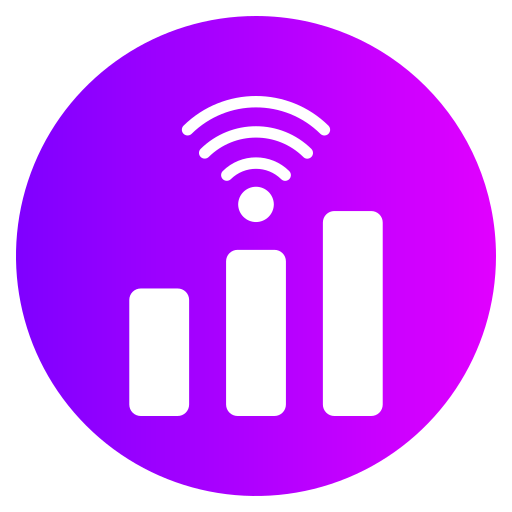Guides
What is the role of miners in the Bitcoin network?
At the heart of the Bitcoin network lies a crucial group of participants known as miners. These miners play a fundamental role in maintaining the integrity, security, and functionality of the Bitcoin blockchain.
In this blog, we'll delve into the intricacies of mining and explore why miners are indispensable to the operation of the Bitcoin network.
What are Bitcoin Miners?
Bitcoin miners are individuals or entities that use specialized computer hardware to solve complex mathematical puzzles, known as proof-of-work algorithms. By successfully solving these puzzles, miners validate and process transactions on the Bitcoin network, securing the network and minting new bitcoins in the process.
Role of Miners in the Bitcoin Network:
Transaction Validation: Miners are responsible for validating and processing transactions on the Bitcoin network. When users initiate transactions, they broadcast them to the network, where they await confirmation by miners. Miners collect these transactions into blocks and include them in the blockchain after verifying their validity.
Block Creation: Miners compete to create new blocks by solving cryptographic puzzles. These puzzles require significant computational power to solve, ensuring that creating new blocks is resource-intensive and time-consuming. Once a miner successfully solves a puzzle, they broadcast the new block to the network for validation.
Network Security: The process of mining contributes to the security of the Bitcoin network. Miners' computational efforts make it computationally infeasible for malicious actors to alter transaction history or double-spend coins, as doing so would require controlling a majority of the network's computing power.
Reward Mechanism: In addition to validating transactions and securing the network, miners are incentivized to participate in the mining process through block rewards and transaction fees. When a miner successfully mines a new block, they are rewarded with a predetermined number of newly minted bitcoins, along with any transaction fees associated with the transactions included in the block.
Decentralization: The distributed nature of Bitcoin mining contributes to the decentralization of the network. Unlike traditional financial systems that rely on central authorities, Bitcoin mining allows anyone with the necessary hardware and software to participate in the network, promoting decentralization and censorship resistance.
In summary, miners are essential participants in the Bitcoin network, playing a critical role in validating transactions, creating new blocks, securing the network, and minting new bitcoins.Their computational efforts ensure the integrity and functionality of the blockchain, contributing to the decentralized and trustless nature of Bitcoin. As the backbone of the network, miners uphold the principles of decentralization, security, and immutability that underpin the revolutionary technology of Bitcoin. By understanding the vital role of miners in the Bitcoin network, we gain insight into the inner workings of this groundbreaking digital currency and its potential to reshape the future of finance.
You may Like this Articles
- How can investors track Bitcoin whale movements?
- Demystifying Bitcoin Transactions: How Does Sending Bitcoin Work?
- Understanding Bitcoin Blocks: The Building Blocks of Blockchain
- Bitcoin Whale Watching Made Simple: Tracking Bitcoin Whales with WhaleAlertz.com
- what is bitcoin rich list?
- Exploring Bitcoin Forums: A Hub for Community, Knowledge, and Discussion
- Bitcoin: A Comprehensive Guide to Understanding the Basics, Creation, Functionality, and Acquisition
- Safeguarding Your Digital Fortunes: Tips for Securing Bitcoin Holdings
- Unearthing Digital Gold: A Beginner's Guide to Bitcoin Mining
- What are Bitcoin whales and why are they important in the cryptocurrency market?
- What is a whale alert?
- Crypto whale tracking : WhaleAlertz.com. Find Bitcoin Whales, Transactions, Blocks, Alerts
- Navigating the Bitcoin Rich List: Insights into Richest Transactions and Whale Movements
- Understanding the Impact of the Bitcoin Mempool on Transactions
- Can I make money from Bitcoin trading?
- Tracking Crypto Whales: Understanding Their Impact on the Market
- Bitcoin Whales: Who They Are and How They Affect the Market?
- The Genesis of Bitcoin: Unraveling the Mystery of Satoshi Nakamoto and the Birth of a Digital Revolution
- Bitcoin Halving: A Comprehensive Guide to Understanding its Significance, Impact, and Implications
- Bitcoin Genesis Block and the Enigma of Satoshi Nakamoto
- Bitcoin Price Dynamics: Understanding Volume, Market Cap, and Price Determinants
Latest Articles
-
Bitcoin Price in India (BTC/INR: Convert Bitcoin (BTC) to Indian Rupee (INR))
-
Crypto whale tracking : WhaleAlertz.com. Find Bitcoin Whales, Transactions, Blocks, Alerts
-
How does Bitcoin work?
-
Safeguarding Your Digital Fortunes: Tips for Securing Bitcoin Holdings
-
What is the role of miners in the Bitcoin network?
-
What is Bitcoin Halving?
-
Understanding the Impact of the Bitcoin Mempool on Transactions
-
Tracking Crypto Whales: Understanding Their Impact on the Market
-
What is a whale alert?
-
What is Bitcoin Block Difficulty?
-
Bitcoin: A Comprehensive Guide to Understanding the Basics, Creation, Functionality, and Acquisition
-
Navigating the Bitcoin Rich List: Insights into Richest Transactions and Whale Movements
-
What is Bitcoin Block Weight?
-
Exploring Bitcoin Forums: A Hub for Community, Knowledge, and Discussion
-
What are Bitcoin whales and why are they important in the cryptocurrency market?
-
Bitcoin Price Dynamics: Understanding Volume, Market Cap, and Price Determinants
-
Bitcoin Halving Details
-
Bitcoin Whale Watching Made Simple: Tracking Bitcoin Whales with WhaleAlertz.com
-
What is the Coinbase hex in a Bitcoin block, and how is it structured?
-
Bitcoin Genesis Block and the Enigma of Satoshi Nakamoto
-
Is Bitcoin halving period a good time to invest in the crypto asset?
-
What is the transaction per second (TPS) rate of the Bitcoin network?
-
What is Bitcoin rich list?
-
Top Bitcoin Wallet Addresses 2024 (Bitcoin Richlist) : Insights into Crypto Wealth Distribution
-
What factors contribute to the increase in bitcoin blockchain size over time?



.png)




